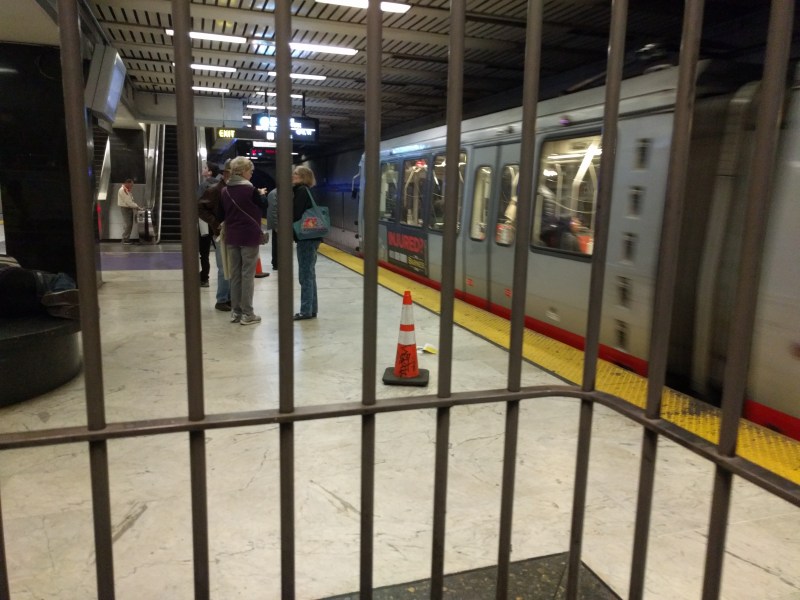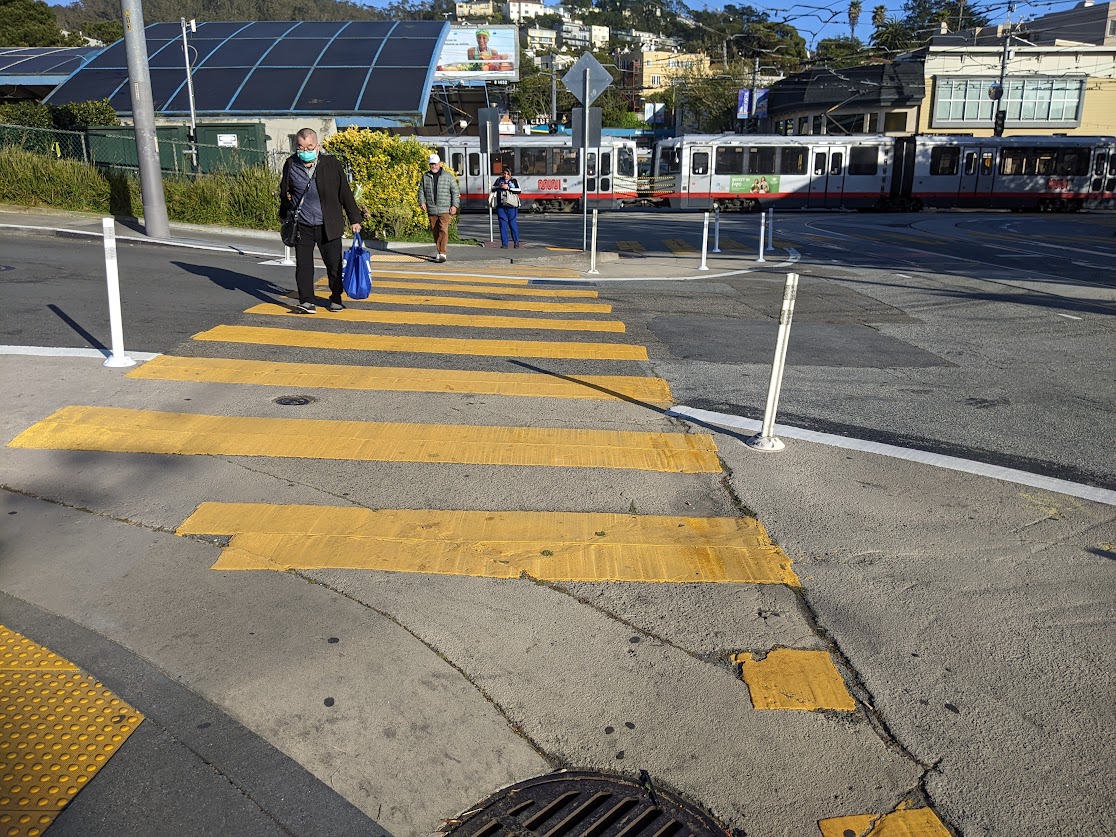SFBC Starts “Turn ‘Em In” Pothole Campaign
9:03 AM PDT on April 7, 2010
 Click image to enlarge: The first of four panels on the new "Turn 'Em In" pothole campaign. Image: Jonas Madden-Connor and Francois Vigneault. New Panels will be unveiled each Tuesday in April.
Click image to enlarge: The first of four panels on the new "Turn 'Em In" pothole campaign. Image: Jonas Madden-Connor and Francois Vigneault. New Panels will be unveiled each Tuesday in April.As any bicycle rider in San Francisco knows, the potholes on the streets can be vicious. Most of us probably get to know a few quite well and just ride around them. The pothole that I learned to hate was in the bike lane on Valencia at the intersection of McCoppin. Every time I rode by, I swerved and badmouthed the city and thought about that street repair bond that never got past the Board of Supervisors.
As it turns out, I could have been a lot more proactive in fixing what for me was a nuisance, but what for a less-experienced rider might have been a real hazard. Neal Patel of the San Francisco Bicycle Coalition (SFBC), which runs a Good Roads Campaign for improving the conditions of the streets, said his organization is trying to raise awareness among cyclists that fixing the potholes they take for granted is as simple as a call to 311.
Throughout April, the SFBC is asking its members to say something when they see bad pavement, to stop for a few moments and call 311. They have dubbed the month-long initiative the "Turn 'Em In" campaign and they are tracking the results in coordination with the San Francisco Department of Public Works (DPW). Patel said DPW has committed to fixing potholes within a few days of the call, and no more than one week.
"You the cyclist have the power to get our streets fixed," said Patel. Cyclists should simply tell the 311 operator to tag their case with "SFBC." "It's painless. We want
everyone to get trained and feel comfortable and feel that it's easy,
because it is easy."
SFBC member, Bike NOPA publisher, and all around pavement condition wonk Michael Helquist said cyclists can be the front line for identifying problems on the streets, which greatly improves DPW's efficiency.
"We just have to break through the resistance of each of us thinking,
'okay, I'll put up with this, I'll dodge it,' when all you have to do is
take a look around, get a notion of where it is, stop and call
311; or when you get where you are going, just turn it in," said Helquist.
DPW spokesperson Christine Falvey reiterated the importance of the "Turn
'Em In" campaign and other efforts to improve the conditions of the
streets. "SFBC and DPW are partners in keeping streets and especially bike
lanes free of potholes. We support this effort and other programs that
SFBC has launched to educate bicyclists and everyone, really, about the
importance of calling in potholes, so that we can respond," she said.
Though Helquist leads a regular monthly pothole ride with the SFBC, he said there is no way they can identify all the potholes that cyclists regularly encounter, nor can they go to routes that are less frequented by bicycle commuters, but that need significant attention.
"Think about having a smoother ride, but more importantly think about having a safer ride," he said. "You maybe know where it is every day on your way to work and don't give it a second thought, but someone else doesn't, they might hit it, it might throw them."
Whenever you see a pothole, stop your bike (!) and call 311. Ask the operator to tag your case with "SFBC." If your request hasn't been fixed within a week, or the issue is more significant than a simple pothole, get in touch with Neal Patel: neal (at) sfbike.org.
Stay in touch
Sign up for our free newsletter
More from Streetsblog San Francisco
Commentary: Make Bay Area Transit Seamless as Condition of New Funding
SFMTA Starts West Portal Outreach
Agency presents plans to block traffic from crossing in front of the train station




